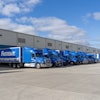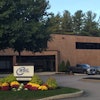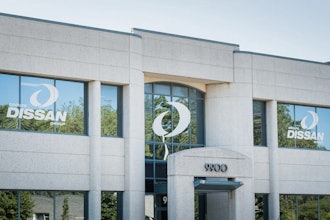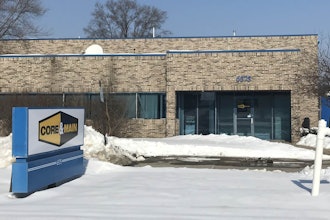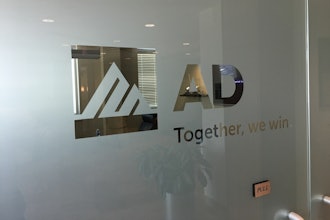Federal labor regulators are accusing Boeing Co. of illegally retaliating for a 2008 union strike by adding a non-union assembly line in South Carolina for its new 787 passenger jet.
The complaint filed by the National Labor Relations Board said the remedy should include moving the South Carolina assembly work back to Washington state, where it would be under union jurisdiction.
The complaint quotes public statements by Boeing executives saying they put the plant in South Carolina in part to avoid future labor disruptions. The government complaint said this amounts to discriminating based on union activity.
Most 787s are being assembled in Washington state by members of the International Association of Machinists and Aerospace Workers. Boeing expects to deliver the first one to a customer later this year, and with more than 800 orders it's expected to be a major seller for Boeing for years. Boeing plans to build seven 787s per month in the Puget Sound area near Seattle and three per month at a new plant in Charleston, S.C. Its more than 1,000 workers there are non-union.
An IAM strike in late 2008 shut down Boeing's commercial airplane production for eight weeks. It was one of several factors contributing to the delay of more than three years for the 787. Less than a year after the strike ended, Boeing said the second 787 production line would be in South Carolina, which offered Boeing $170 million in incentives and relief from sales taxes on things like fuel used in test flights.
The complaint quoted President, Chairman and CEO Jim McNerney saying on an earnings conference call that Boeing was moving some 787 work to South Carolina due to "strikes happening every three to four years in Puget Sound." The NLRB also said that an Oct. 28, 2009, memo about the South Carolina assembly line said that one reason was to reduce Boeing's vulnerability to delivery disruptions caused by work stoppages.
Boeing considered keeping the work in the Seattle area along with moving it to South Carolina. One factor was that Boeing worked with two major suppliers — which it later bought out — in the Charleston area, said Boeing spokesman Tim Neale.
Neale also said that the number of IAM workers in the Puget Sound area has actually grown by 2,000 workers since then. South Carolina was "add-on capacity. It wasn't a transfer of work," he said.
In a statement, Boeing said the complaint departs from NLRB and Supreme Court precedents.
"Boeing has every right under both federal law and its collective bargaining agreement to build additional U.S. production capacity outside of the Puget Sound region," said Boeing General Counsel J. Michael Luttig.
A hearing before an administrative law judge is planned for June 14 in Seattle. Any decision issued by the judge could be appealed to the board, and then a federal appeals court. The complaint was signed by the National Labor Relations Board regional director in Seattle. Boeing employs almost 75,000 people in Washington state, nearly half its worldwide workforce.
South Carolina is a so-called "right-to-work" state, meaning individual employees can join unions but unions can't force membership across entire work sites.
Sen. Lindsey Graham, R-S.C., said the NLRB complaint, if successful, would give unions a virtual veto over business decisions.
"Left to their own devices, the NLRB would routinely punish right-to-work states that value and promote their pro-business climates," he said.
The Boeing case is the latest example of a labor board that has been more active in defending the rights of unions since gaining a Democratic majority last year for the first time in nearly a decade. The five-member board currently has three Democratic appointees, one Republican and one vacancy.
In recent months, the board has cracked down on companies that fire employees during union organizing drives. It also made waves in January when it threatened to sue South Carolina and three other states over constitutional amendments that guarantee the right to a secret ballot in union elections.
___
Associated Press writer Sam Hananel in Washington contributed to this report.


